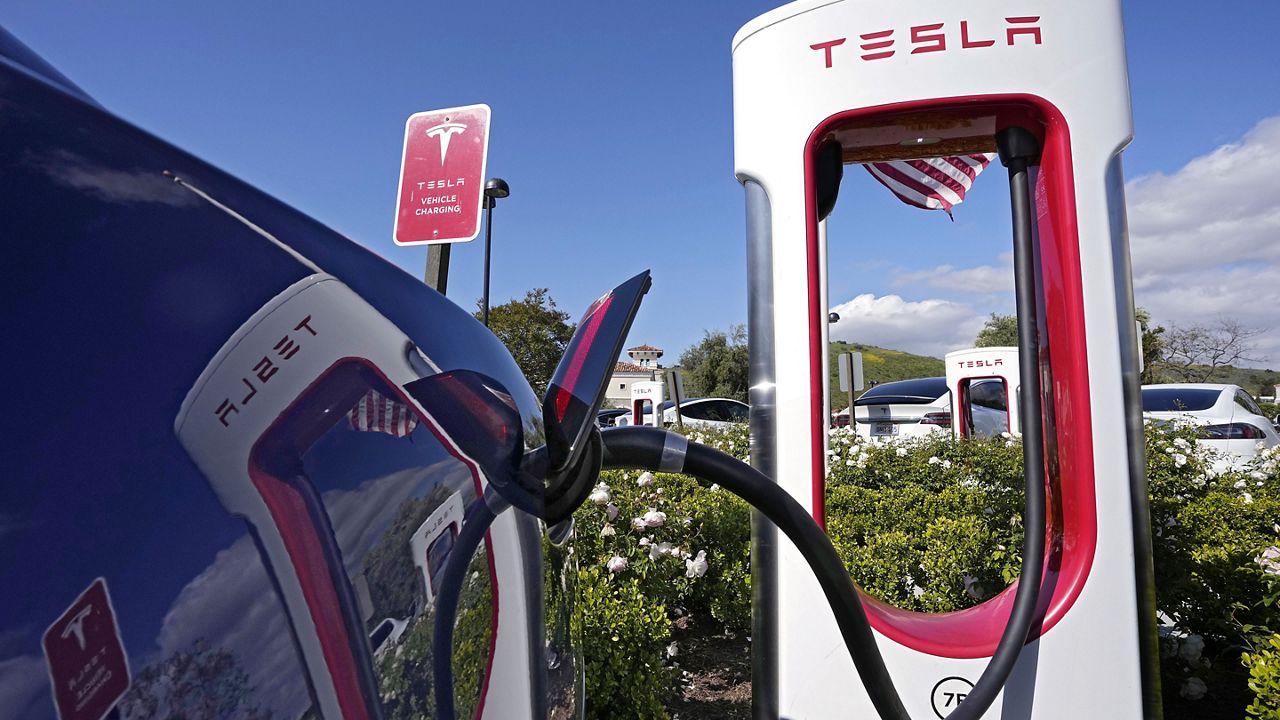The U.S. Treasury Department clarified a rule that could dramatically reduce the number of electric vehicles eligible for the $7,500 federal tax credit next year. As part of the Inflation Reduction Act, automakers that source electric vehicle battery components from a foreign entity of concern, such as China, will no longer be eligible for the credit starting Jan. 1.
Fifteen months after the IRA was signed into law, the Treasury Department on Friday issued a long-awaited, slightly more concise definition of "foreign entity of concern" to include any company based in China, including U.S. subsidiaries of companies and companies over which Chinese state entitles have at least 25% control.
“Treasury’s effort to make the rules workable means the list of eligible vehicles won’t completely disappear in 2024, which was a real worry,” Alliance for Automotive Innovation Chief Executive John Bozzella said in a statement Friday.
While praising the additional clarity, the trade group representing most major carmakers operating in the U.S. said it was too soon to know how the foreign entity rule would affect the number of electric vehicles that qualify for the federal tax credit come next year.
Just 20 electric vehicles, out of the 103 that are currently on the market, currently qualify for the $7,500 federal tax credit EV buyers have enjoyed for more than a decade, following a new IRA rule that took effect Jan. 1 of this year requiring that EVs be assembled in North America to be eligible.
The new IRA rule also requires that 40% of the minerals and 50% of the battery components used to make EVs come from North America or a country with which the U.S. has a free trade agreement. As of Dec. 31, the rule specifies that no EV tax credit will be permitted if any component in the EV battery is sourced from a problematic country such as China.
The Treasury Department recognized “how hard the EV transition is going to be in the U.S. and tried to strike a balance,” Bozzella said. “When it comes to China and the auto industry, it’s complicated.”
China makes about 75% of all lithium-ion batteries globally, according to the International Energy Agency. The U.S. makes just 7%.
China is not one of the countries with which the U.S. conducts free trade. Instead, under the new IRA rule, EV component materials need to be sourced from inside the country or with trading partners such as Australia, Canada, Chile and Korea.
Beyond lithium, about 90% of the minerals used in EVs are processed in China. While efforts are underway to source more of those minerals on U.S. soil, extracting them will take time and investment.
In 2019, the Trump administration devised a strategy for the U.S. Department of Interior to locate domestic supplies of critical minerals in an effort to reduce foreign reliance on the key ingredients for items like cellphones, computers and cars. In 2021, the Biden administration bolstered that effort when it provided $75 million in funding for the U.S. Geological Survey to map critical minerals through the Bipartisan Infrastructure Law.
It remains unclear whether enough cobalt, lithium or many of the other minerals needed for EV production can be reliably source from inside the U.S. or its friendly trade partners as quickly as the Inflation Reduction Act dictates, especially with automakers poised to radically ramp up EV production.
General Motors has said it will phase out gas-powered cars by 2035. Ford has pledged to end sales of gas- and diesel-powered cars by 2040. Many other global automakers who build cars in the U.S. have committed to similar timelines for a transition to zero emissions.
Sales of hybrid, plug-in hybrid and battery electric vehicles set a new record in the third quarter of 2023. They are now 18% of new passenger vehicle sales, according to Wards Intelligence.



